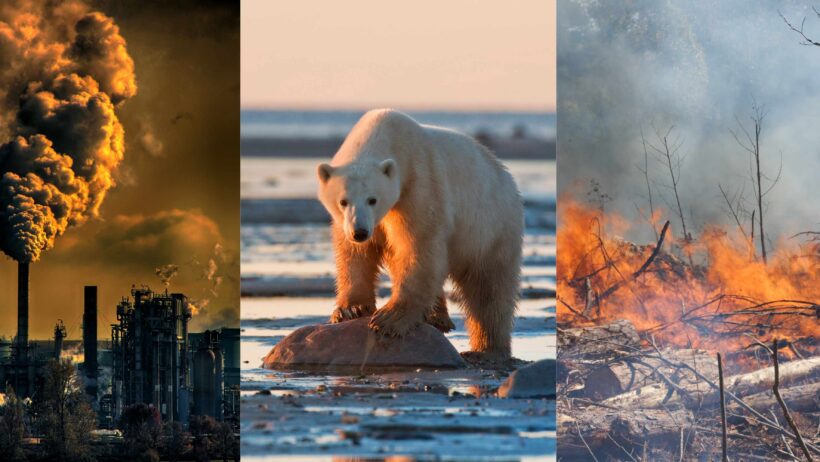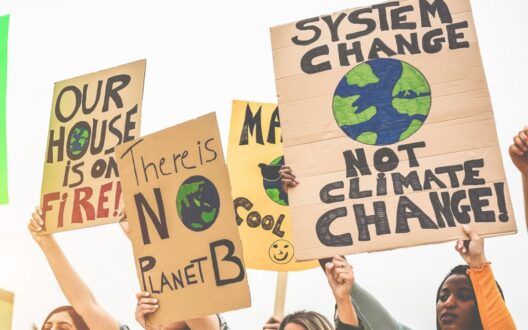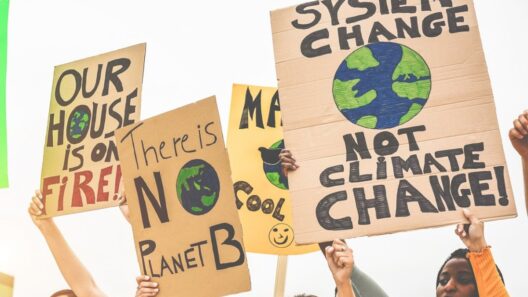Global warming is an issue that transcends borders, affecting every continent, ocean, and ecosystem. As the Earth’s average temperature rises, it is imperative that individuals and communities harness the power of collective action to mitigate this phenomenon. In this discourse, we will explore diverse strategies that empower change at personal, local, and global levels, emphasizing the shared responsibility we all bear.
To begin with, understanding the intricacies of global warming is crucial. Global warming refers to the long-term rise in the average temperature of the Earth’s atmosphere due to increased concentrations of greenhouse gases, predominantly carbon dioxide (CO2), methane (CH4), and nitrous oxide (N2O). These gases stem primarily from human activities, including fossil fuel combustion, deforestation, and industrial processes. Increasing awareness about these causes is the first step in driving change.
**Individual Actions:** At the individual level, every small action counts. The most straightforward method to combat global warming is to minimize carbon footprints through lifestyle changes. Adopting a more sustainable diet by reducing meat consumption and opting for locally sourced, organic foods can significantly reduce greenhouse gas emissions associated with livestock production. Furthermore, individuals can conserve energy by changing their daily habits. Simple actions such as using energy-efficient appliances, switching to LED lighting, and unplugging devices when they are not in use contribute to a more sustainable lifestyle.
Another impactful strategy is the promotion of sustainable transportation. Opting for cycling, walking, or utilizing public transit instead of personal vehicles drastically decreases greenhouse gas emissions. Carpooling and practicing eco-driving techniques can also play a significant role in reducing one’s environmental impact. Electric vehicles, although sometimes viewed as a luxury, are becoming increasingly accessible and can represent a more sustainable choice for personal transportation.
**Community Engagement:** Beyond individual actions, community engagement is vital. Grassroots movements, local organizations, and community projects provide platforms for collective action. Communities can organize tree-planting initiatives, clean-up drives, and workshops that educate residents about sustainability. By fostering a culture of environmental stewardship, communities can inspire more individuals to participate in green practices. Creating community gardens not only brings people together but also promotes biodiversity and enhances local food security.
Moreover, local governments can be galvanized to adopt environmental policies that prioritize sustainability. Advocating for renewable energy sources, such as solar and wind, can lead to significant reductions in reliance on fossil fuels. Participating in local government meetings, supporting environmental legislation, and voting for candidates who prioritize the environment are essential avenues for effecting policy change.
**Educational Initiatives:** Education is a transformational tool for empowering change. Institutions and organizations should emphasize environmental education, specifically targeting youth. By integrating climate science into the curriculum, educational systems can cultivate environmentally conscious citizens from an early age. Interactive learning, such as field trips to conservation sites, workshops on recycling, and innovation contests focused on sustainability, can ignite passion and commitment among students.
Higher education institutions also play a pivotal role in addressing global warming through research and development. Universities can spearhead initiatives that promote sustainable practices on campus, thereby setting a precedent for students and the larger community.
**Corporate Responsibility:** Businesses must also embrace their role in combating climate change. Corporate social responsibility (CSR) encompasses various initiatives that companies can adopt to minimize their environmental impact. This may include reducing waste, implementing energy-efficient processes, and investing in renewable energy sources. Creating a corporate culture geared towards sustainability not only enhances brand reputation but also corresponds with growing consumer demand for sustainable practices.
Moreover, corporations should strive for transparency regarding their carbon footprints. By committing to sustainability goals and communicating progress, businesses can engage consumers and inspire other companies to follow suit.
**Advocacy and Global Cooperation:** At the global level, international cooperation is indispensable. Organizations such as the United Nations play a key role in uniting countries to combat climate change through agreements like the Paris Agreement. Citizens can engage by participating in advocacy campaigns, supporting global leaders who prioritize climate action, and raising awareness about necessary policies that aim to curb emissions.
Social media platforms have become vital tools for advocacy, enabling individuals to amplify their voices and drive change. Utilizing these digital channels effectively can mobilize crowds, educate audiences, and gather support for local, national, and international campaigns.
**Technological Innovations:** Technology also paves the way for innovative solutions to global warming. Emerging technologies in carbon capture and storage, renewable energy advancements, and sustainable agricultural practices all represent significant strides toward mitigating climate change. Supporting research and development in these areas can lead to groundbreaking solutions to the climate crisis.
In conclusion, combating global warming requires multifaceted approaches that engage individuals, communities, businesses, and governments alike. By implementing personal changes, fostering community engagement, advocating for better policies, supporting sustainable businesses, and embracing technological innovations, we can forge a collaborative path toward a sustainable future. It’s essential to recognize that while individual actions are imperative, collective efforts can precipitate substantial global transformation. Together, we have the power to make a difference; let us rise to the challenge.








